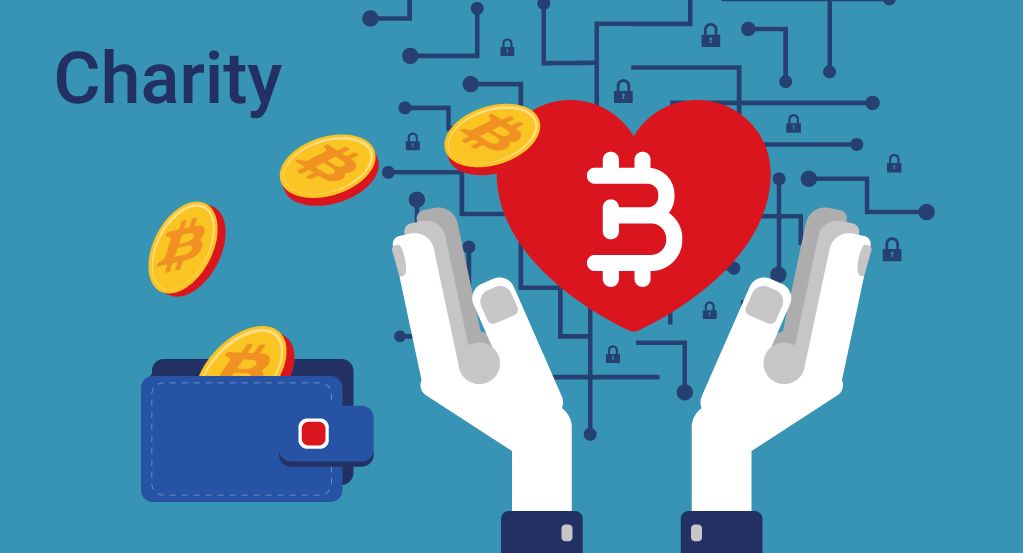Blockchain technology is making significant inroads into various sectors, and its application in charity and nonprofit organizations is one of the most promising areas for enhancing transparency and accountability. By leveraging the decentralized and immutable nature of blockchain, charities can provide greater transparency in how donations are managed and utilized, ensuring that contributions are used effectively and as intended.
One of the primary benefits of using blockchain in charity is its ability to create a transparent and traceable record of all transactions. Each donation made through a blockchain-based system is recorded as a transaction on the blockchain ledger. This ledger is immutable, meaning once a transaction is recorded, it cannot be altered or deleted. This feature ensures that all donations are permanently and transparently recorded, providing donors with a clear and verifiable account of where their money is going.
For example, blockchain can track the journey of a donation from the moment it is made until it reaches its final destination, such as a specific project or beneficiary. Donors can access this information in real time, seeing exactly how their funds are allocated and spent. This transparency helps build trust between charities and their supporters, as donors can verify that their contributions are being used for the intended purposes rather than being misappropriated or wasted.
Blockchain technology also enhances accountability by providing a decentralized record of transactions. Traditional charity systems often rely on centralized databases managed by the charity organization, which can be susceptible to errors, fraud, or mismanagement. In contrast, blockchain operates on a decentralized network of nodes, where each node maintains a copy of the ledger. This decentralized nature reduces the risk of data tampering or corruption and ensures that all transactions are verified and agreed upon by multiple participants in the network.
Moreover, smart contracts—self-executing contracts with the terms of the agreement directly written into code—can be integrated into blockchain-based charity systems. Smart contracts automatically enforce the terms of a donation, such as disbursing funds only when certain conditions are met. For example, a smart contract could release funds to a charity organization only when it provides proof of project completion or when specific milestones are achieved. This automated and condition-based release of funds adds an additional layer of accountability and ensures that donations are used according to the agreed-upon terms.
In addition to transparency and accountability, blockchain can also facilitate more efficient and cost-effective charitable transactions. Traditional financial systems often involve intermediaries, such as banks or payment processors, which can introduce delays and additional costs. Blockchain transactions, however, can be processed directly between parties without the need for intermediaries, reducing transaction fees and processing times. This efficiency is particularly beneficial for international donations, where cross-border transactions can incur significant fees and delays.
Blockchain technology also has the potential to enhance donor engagement and participation. By providing a transparent and traceable record of donations, charities can offer donors greater visibility into the impact of their contributions. This visibility can foster a stronger connection between donors and the causes they support, leading to increased donor satisfaction and loyalty. Additionally, blockchain can enable new forms of engagement, such as token-based incentives or rewards for donors, further enhancing their involvement and support.
However, the adoption of blockchain in the charity sector is not without challenges. Implementing blockchain technology requires technical expertise and infrastructure, which may be a barrier for some organizations. Additionally, while blockchain enhances transparency and accountability, it does not address all potential issues, such as the quality and effectiveness of the programs funded by donations. Charities must continue to focus on programmatic outcomes and impact measurement alongside adopting blockchain solutions.
The potential benefits of blockchain for transparent charity donations are substantial. By providing a transparent, traceable, and efficient system for managing donations, blockchain can help restore trust in the charitable sector and ensure that contributions are used effectively to support meaningful causes. As blockchain technology continues to evolve and gain acceptance, its integration into charity and nonprofit organizations is likely to become increasingly widespread, driving greater transparency and accountability in the sector.
From Our Editorial Team
Our Editorial team comprises of over 15 highly motivated bunch of individuals, who work tirelessly to get the most sought after curated content for our subscribers.




